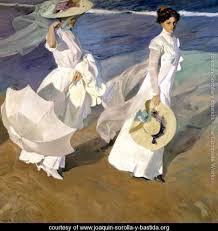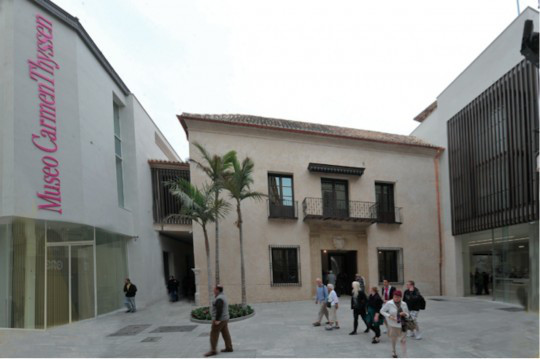Jeremy Butterfield's Blog, page 21
December 13, 2016
-ise or -ize? Is -ize American? (2/3) Damn your -ize, Morse!
Inspector Morse was a snob and a pedant — but you probably knew that already.
The -ize spelling is exclusively US = MYTH.
The -ize spelling is far from being a modern invention. In fact, you could say it’s Greek.
Some authoritative British journalism style guides recommend the -ise spelling.
Overall, there is a marked preference in British English writing for the -ise, -yse spellings.
Damn your -ize, Morse!
In Ghost in the Machine (1987), an episode of the British TV series Inspector Morse (1987–2000), Morse ritually humiliates his long-suffering sidekick, DS Lewis, as you can witness in this YouTube extract.
(Someone should have told Morse that being an Oxonian does not entitle you to belittle others – oh, but hang on, that’s part of the characterisation.)
To give non-Morseians a bit of background, they are looking at what purports to be a suicide note, supposedly written by the aristo, art collector and general toff Sir Julius Hanbury. Morse assumes, naturally, that an aristo knows how to spell. That’s why he smells a rat.
Morse Now, how does he spell ‘Apologise’? …with an s. ‘Civilised.’ Another s.
Lewis What’s wrong with that?
Morse (Morse glowers at Lewis as if he were something he has just scraped off his shoe, and expostulates triumphantly.) It’s illiterate1, that’s what.
The Oxford English Dictionary uses a z for words that end in -/ʌɪz/. And so did Sir Julius. Look…here. So, HE didn’t write it.
So, do Brits use the -ize spelling?
As with most things in language, there’s no simple yes/no answer.
Some do, some don’t. (See the table later on for organize, which also shows that that the -ise spelling, though rather rare, is also used on the far side (from me) of the pond.)
Sure enough, the OED uses the -ize spelling, and its (chiefly etymological) reasons for doing so are set out in a note at the entry for –ize, part of which is reproduced at the end of this blog2.
But, in contrast, many British speakers would take the opposite view, and call -ize “illiterate” or an “Americanism”, which, let’s face it, is in some people’s view much the same thing, or, actually, rather worse.
It has even been suggested, in a comment by Gerwyn Moseley on my earlier blog, that Brits who insist on changing -ize to -ise are indulging in hypercorrection.
People have also asked me why I use the -ize spelling , the answer to which is that I follow OUP and Collins style — even though I’m sure I used to write -ise.
As mentioned in my earlier blog on the topic, several British style guides favour -ise, and The Times changes to that spelling in 1992. As for dictionaries, even Oxford show the -ise spelling as an alternative in their online dictionary (NB: this is not the OED.) Collins English dictionary shows only the -ize form, as does Macmillan; Cambridge shows the -ize form as the headword, but with a very visible note underneath about British spelling.
Some figures
Life being finite – no matter what anyone tries to tell you – it is impossible for me to look at all examples that might be relevant, so I have been very selective. In the Global Corpus of Web-based English, the figures for the lemma ORGANIZE are shown below (yes, many will be the adjective, I know, but “la vida es un soplo” [life is a mere breath]). The bottom row sums it all up.
US
Can
Brit
organized
9,375
4,821
3,260
organize
5,652
2,529
1,854
organizing
4,138
1,795
1,178
organizes
529
271
209
TOTAL -IZE
19,694
9,416
6,501
organised
575
279
8,978
organise
376
163
5,352
organising
243
130
4,042
organises
35
17
522
TOTAL -ISE
1,229
589
18,894
Percentage
all forms -ize/ise
94.1%5.9%
94.3%/5.7%
25.6%/75.4%
I also looked at a far less frequent lemma, civilise/civilize, which yields less extreme percentages but a similar general outlook for US English, but a much more even balance between the two forms in British English:
civilize, -ized, -izing
Brit = 53 (29/19/5) US = 126 (79/31/16)
civilise, -ising
Brit = 76 (35/41) US = 10 (8/2)
Percentage all forms -ize/ise:
US: 92.65%/7.35%
Brit: 41.09%/58.91%
The difference between the percentages for the two words in British English makes me wonder if organize/-ise, is a sort of test case: being so much more frequent, it automatically presses those “ah, British spelling!” alarm buttons for British English speakers that “civilize/-ise” doesn’t.
Is -ize American?
No. No. And no, again.
It is not a dastardly modern “American invention”, as many British speakers seem to think.
Spellings in -ize go back to the 15thcentury; organize is first recorded in the OED from 1425, in an English translation from French:
The brayne after þe lengþ haþ 3 ventriclez, And euery uentricle haþ 3 parties & in euery partie is organized [L. organizatur] one vertue.
The OED’s earliest example for realize is from 1611, from A Dictionarie of the French and English Tongues, a bilingual dictionary by Randle Cotgrave:
Realiser, to realize, to make of a reall condition, estate, or propertie; to make reall.
Dr Johnson spelled such word as –ize in his 1755 dictionary, although the first OED-recorded use of realise is, as it happens, in a letter of 30 December of that same year from Dr J:
Designs are nothing in human eyes till they are realised by execution.
Surprize, surprize!
As a friend and colleague pointed out, Jane Austen spelt surprize thus, as did Shakespeare, Milton, Defoe, John Evelyn, Vanbrugh, Addison, Wordsworth … all “in despite of” etymology, since the word comes from Anglo-Norman and Old French surprise, past participle of surprendre.
A search for -ize in the online text of Fanny Burney’s Evelina (1778) retrieves apologize, civilized, monopolize, recognize, stigmatize, sympathize, and the very modern-sounding journalize (= “to make a journal entry for”, I think) and Londonize (in its first OED citation).
It’s all Greek to me
The -ize ending is very ancient indeed: it comes to us from Classical Greek.
A politically important word in which it featured was the ancestor of our modern ostracize. I find it thrilling (Note to self: Must get our more often; PS to self: don’t bother) to think that there is a direct line of descent from ὀστρακίζειν ostracize from the Athens of 2,500 years ago to its modern descendant.
Early Christian writers Latinized some key Greek words ending with the -izo suffix, such as “to baptize” – βαπτίζειν – which then passed into English from French baptiser. The first citation for the word (1297) is spelt baptize rather than baptise (though most of the other OED citations have the s spelling).
[image error]
Perugino paints a flash-mob Baptism.
Which words are only written -ise ?
My related blog on the topic lists the most common ones.
There are also various rules of thumb which, at a pinch, might help.
If there is a noun or adjective to which you can relate the verb, then the verb can most probably be written either way. For example:
final –> finalise/finalize
real –> realise/realize
critic –> criticise/criticize
Conversely, if you want to remember which words can only be spelt -ise, it has been suggested that you should ask yourself if there is an -ation derivative. If there ain’t — e.g. no *comprisation, enterprisation, enfranchisation, revisation, etc. — then the verb must be spelt with an s in the first place.
Applying my rule of thumb, you can tell that words like the ones below can only ever be written -ise because there is no current, existing word to which they can be related that is not a derivative of themselves, if you see what I mean (e.g. enfranchisement, supervision).
comprise
enterprise
enfranchise
revise
supervise
Some of the verbs always written -ise are back-formed from nouns, like televise television, or have a related nouns, like advertise advertisement. So, if you remember that the nouns advertisement and television both have -is-, you are more likely to spell the verbs correctly.
If you want to check online which words can be spelt either way, the Oxford Dictionary Online shows the alternatives very clearly, and it has both World English and US English versions.
There is also the oddity of a vessel apparently named Enterprize (see note 3 at the end of this blog).
So where does -ise come from?
In a nutshell, some of the words for which either spelling is possible came from French. And in French the ending is always -iser. Examples are civilise / civilize, and humanise / humanize. Many of the words which can only ever be spelt –ise came into English directly from French: apprise / comprise / surmise / surprise. They are formed on the basis of the French past participle ending in -is: think of the French phrase Vous avez compris? (“Have you understood?”)
I haven’t said yet that the seesaw between s and z obviously applies to derived words as well:
globalization / globalization
localization / localization
It also applies to verbs which have a y before the s or z, such as analyse, catalyse and paralyse, where -yse is the norm in British English and -yze the rule in American English.
Why do some people dislike verbs such as prioritize and diarize ?
That’s the trillion-dollar question…
[1] Polysemy is a marvellous thing. Morse uses “illiterate” here in its extended meaning of “poorly written”, not its literal one of “unable to write”. That corresponds to sense 1.3 here. In a Guardian piece, I used it in a similar way. In a comment on that piece, someone attempted to wisecrack that the word didn’t mean what I thought it meant, thereby proving that they were illiterate in sense 1.2
[2] OED note
“…; in modern French the suffix has become -iser, alike in words from Greek, as baptiser, évangéliser, organiser, and those formed after them from Latin, as civiliser, cicatriser, humaniser. Hence, some have used the spelling -ise in English, as in French, for all these words, and some prefer -ise in words formed in French or English from Latin elements, retaining -ize for those formed < Greek elements. But the suffix itself, whatever the element to which it is added, is in its origin the Greek -ιζειν, Latin -izāre; and, as the pronunciation is also with z, there is no reason why in English the special French spelling should be followed, in opposition to that which is at once etymological and phonetic.”
Oxford blog note: “The use of ‘-ize’ spellings is part of the house style at Oxford University Press. It reflects the style adopted in the first edition of the Oxford English Dictionary (which was published in parts from 1884 to 1928) and in the first editions of Hart’s Rules (1904) and the Authors’ and Printers’ Dictionary (1905). These early works chose the ‘-ize’ spellings as their preferred forms for etymological reasons: the -ize ending corresponds to the Greek verb endings -izo and –izein.”
[3] Discussion about the spelling “enterprize” from an earlier version of this blog.
Ted A: Jeremy, a certain 5th-Rate Vessel of the Royal Navy was launched on 28 April 1708 in Plymouth, England. Its name was HMS Enterprize. I’m unable find the reason it was spelled that way. Any clues?
Tom Thomson Are you sure of that? I thought there were only 2 ships called HMS Enterprize, the first a 24 gun frigate captured from the French and renamed Enterprize (from the French L’Entreprise in 1705) and a 10 gun tender lost to the Americans in 1775 after a very brief life in the Royal Navy.
There was quite a fuss about the opening credits of StarTrek:Enterprise which showed a Galleon called HMS Enterprize, and a lot of people (not me, though, I’m too lazy about stuff outside my main interests) spent a lot of time trying to find out what this ship was; they all concluded that there had only ever been two ships called HMS Enterprize, the two mentioned above.
As neither a 24 gun frigate nor a 10 gun tender could carry enough guns to be a fifth rate warship (as far as I understand the rates the frigate could be 6th rate but not fifth), I suspect there was no 5th rate HMS Enterprize in 1708. Of course as the first HMS Enterpize was wrecked in 1707 and didn’t return to service and the second was built the best part of 70 years later, I suppose the gun count is a superfluous argument.
Filed under: Grammar, Help for writers & editors, Spelling Tagged: American Spelling, Inspector Morse, US & British usage, verbs ending in -ize


-ise or -ize? Is -ize American? (2/2) Damn your -ize, Morse!
Inspector Morse was a snob and a pedant — but you probably knew that already.
The -ize spelling is exclusively US = MYTH.
The -ize spelling is far from being a modern invention. In fact, you could say it’s Greek.
Some authoritative British journalism style guides recommend the -ise spelling.
Overall, there is a marked preference in British English writing for the -ise, -yse spellings.
Damn your -ize, Morse!
In Ghost in the Machine (1987), an episode of the British TV series Inspector Morse (1987–2000), Morse ritually humiliates his long-suffering sidekick, DS Lewis, as you can witness in this YouTube extract.
(Someone should have told Morse that being an Oxonian does not entitle you to belittle others – oh, but hang on, that’s part of the characterisation.)
To give non-Morseians a bit of background, they are looking at what purports to be a suicide note, supposedly written by the aristo, art collector and general toff Sir Julius Hanbury. Morse assumes, naturally, that an aristo knows how to spell. That’s why he smells a rat.
Morse Now, how does he spell ‘Apologise’? …with an s. ‘Civilised.’ Another s.
Lewis What’s wrong with that?
Morse (Morse glowers at Lewis as if he were something he has just scraped off his shoe, and expostulates triumphantly.) It’s illiterate1, that’s what.
The Oxford English Dictionary uses a z for words that end in -/ʌɪz/. And so did Sir Julius. Look…here. So, HE didn’t write it.
So, do Brits use the -ize spelling?
As with most things in language, there’s no simple yes/no answer.
Some do, some don’t. (See the table later on for organize, which also shows that that the -ise spelling, though rather rare, is also used on the far side (from me) of the pond.)
Sure enough, the OED uses the -ize spelling, and its (chiefly etymological) reasons for doing so are set out in a note at the entry for –ize, part of which is reproduced at the end of this blog2.
But, in contrast, many British speakers would take the opposite view, and call -ize “illiterate” or an “Americanism”, which, let’s face it, is in some people’s view much the same thing, or, actually, rather worse.
It has even been suggested, in a comment by Gerwyn Moseley on my earlier blog, that Brits who insist on changing -ize to -ise are indulging in hypercorrection.
People have also asked me why I use the -ize spelling , the answer to which is that I follow OUP and Collins style — even though I’m sure I used to write -ise.
As mentioned in my earlier blog on the topic, several British style guides favour -ise, and The Times changes to that spelling in 1992. As for dictionaries, even Oxford show the -ise spelling as an alternative in their online dictionary (NB: this is not the OED.) Collins English dictionary shows only the -ize form, as does Macmillan; Cambridge shows the -ize form as the headword, but with a very visible note underneath about British spelling.
Some figures
Life being finite – no matter what anyone tries to tell you – it is impossible for me to look at all examples that might be relevant, so I have been very selective. In the Global Corpus of Web-based English, the figures for the lemma ORGANIZE are shown below (yes, many will be the adjective, I know, but “la vida es un soplo” [life is a mere breath]). The bottom row sums it all up.
US
Can
Brit
organized
9,375
4,821
3,260
organize
5,652
2,529
1,854
organizing
4,138
1,795
1,178
organizes
529
271
209
TOTAL -IZE
19,694
9,416
6,501
organised
575
279
8,978
organise
376
163
5,352
organising
243
130
4,042
organises
35
17
522
TOTAL -ISE
1,229
589
18,894
Percentage
all forms -ize/ise
94.1%5.9%
94.3%/5.7%
25.6%/75.4%
I also looked at a far less frequent lemma, civilise/civilize, which yields less extreme percentages but a similar general outlook for US English, but a much more even balance between the two forms in British English:
civilize, -ized, -izing
Brit = 53 (29/19/5) US = 126 (79/31/16)
civilise, -ising
Brit = 76 (35/41) US = 10 (8/2)
Percentage all forms -ize/ise:
US: 92.65%/7.35%
Brit: 41.09%/58.91%
The difference between the percentages for the two words in British English makes me wonder if organize/-ise, is a sort of test case: being so much more frequent, it automatically presses those “ah, British spelling!” alarm buttons for British English speakers that “civilize/-ise” doesn’t.
Is -ize American?
No. No. And no, again.
It is not a dastardly modern “American invention”, as many British speakers seem to think.
Spellings in -ize go back to the 15thcentury; organize is first recorded in the OED from 1425, in an English translation from French:
The brayne after þe lengþ haþ 3 ventriclez, And euery uentricle haþ 3 parties & in euery partie is organized [L. organizatur] one vertue.
The OED’s earliest example for realize is from 1611, from A Dictionarie of the French and English Tongues, a bilingual dictionary by Randle Cotgrave:
Realiser, to realize, to make of a reall condition, estate, or propertie; to make reall.
Dr Johnson spelled such word as –ize in his 1755 dictionary, although the first OED-recorded use of realise is, as it happens, in a letter of 30 December of that same year from Dr J:
Designs are nothing in human eyes till they are realised by execution.
Surprize, surprize!
As a friend and colleague pointed out, Jane Austen spelt surprize thus, as did Shakespeare, Milton, Defoe, John Evelyn, Vanbrugh, Addison, Wordsworth … all “in despite of” etymology, since the word comes from Anglo-Norman and Old French surprise, past participle of surprendre.
A search for -ize in the online text of Fanny Burney’s Evelina (1778) retrieves apologize, civilized, monopolize, recognize, stigmatize, sympathize, and the very modern-sounding journalize (= “to make a journal entry for”, I think) and Londonize (in its first OED citation).
It’s all Greek to me
The -ize ending is very ancient indeed: it comes to us from Classical Greek.
A politically important word in which it featured was the ancestor of our modern ostracize. I find it thrilling (Note to self: Must get our more often; PS to self: don’t bother) to think that there is a direct line of descent from ὀστρακίζειν ostracize from the Athens of 2,500 years ago to its modern descendant.
Early Christian writers Latinized some key Greek words ending with the -izo suffix, such as “to baptize” – βαπτίζειν – which then passed into English from French baptiser. The first citation for the word (1297) is spelt baptize rather than baptise (though most of the other OED citations have the s spelling).
[image error]
Perugino paints a flash-mob Baptism.
Which words are only written -ise ?
My related blog on the topic lists the most common ones.
There are also various rules of thumb which, at a pinch, might help.
If there is a noun or adjective to which you can relate the verb, then the verb can most probably be written either way. For example:
final –> finalise/finalize
real –> realise/realize
critic –> criticise/criticize
Conversely, if you want to remember which words can only be spelt -ise, it has been suggested that you should ask yourself if there is an -ation derivative. If there ain’t — e.g. no *comprisation, enterprisation, enfranchisation, revisation, etc. — then the verb must be spelt with an s in the first place.
Applying my rule of thumb, you can tell that words like the ones below can only ever be written -ise because there is no current, existing word to which they can be related that is not a derivative of themselves, if you see what I mean (e.g. enfranchisement, supervision).
comprise
enterprise
enfranchise
revise
supervise
Some of the verbs always written -ise are back-formed from nouns, like televise television, or have a related nouns, like advertise advertisement. So, if you remember that the nouns advertisement and television both have -is-, you are more likely to spell the verbs correctly.
If you want to check online which words can be spelt either way, the Oxford Dictionary Online shows the alternatives very clearly, and it has both World English and US English versions.
There is also the oddity of a vessel apparently named Enterprize (see note 3 at the end of this blog).
So where does -ise come from?
In a nutshell, some of the words for which either spelling is possible came from French. And in French the ending is always -iser. Examples are civilise / civilize, and humanise / humanize. Many of the words which can only ever be spelt –ise came into English directly from French: apprise / comprise / surmise / surprise. They are formed on the basis of the French past participle ending in -is: think of the French phrase Vous avez compris? (“Have you understood?”)
I haven’t said yet that the seesaw between s and z obviously applies to derived words as well:
globalization / globalization
localization / localization
It also applies to verbs which have a y before the s or z, such as analyse, catalyse and paralyse, where -yse is the norm in British English and -yze the rule in American English.
Why do some people dislike verbs such as prioritize and diarize ?
That’s the trillion-dollar question…
[1] Polysemy is a marvellous thing. Morse uses “illiterate” here in its extended meaning of “poorly written”, not its literal one of “unable to write”. That corresponds to sense 1.3 here. In a Guardian piece, I used it in a similar way. In a comment on that piece, someone attempted to wisecrack that the word didn’t mean what I thought it meant, thereby proving that they were illiterate in sense 1.2
[2] OED note
“…; in modern French the suffix has become -iser, alike in words from Greek, as baptiser, évangéliser, organiser, and those formed after them from Latin, as civiliser, cicatriser, humaniser. Hence, some have used the spelling -ise in English, as in French, for all these words, and some prefer -ise in words formed in French or English from Latin elements, retaining -ize for those formed < Greek elements. But the suffix itself, whatever the element to which it is added, is in its origin the Greek -ιζειν, Latin -izāre; and, as the pronunciation is also with z, there is no reason why in English the special French spelling should be followed, in opposition to that which is at once etymological and phonetic.”
Oxford blog note: “The use of ‘-ize’ spellings is part of the house style at Oxford University Press. It reflects the style adopted in the first edition of the Oxford English Dictionary (which was published in parts from 1884 to 1928) and in the first editions of Hart’s Rules (1904) and the Authors’ and Printers’ Dictionary (1905). These early works chose the ‘-ize’ spellings as their preferred forms for etymological reasons: the -ize ending corresponds to the Greek verb endings -izo and –izein.”
[3] Discussion about the spelling “enterprize” from an earlier version of this blog.
Ted A: Jeremy, a certain 5th-Rate Vessel of the Royal Navy was launched on 28 April 1708 in Plymouth, England. Its name was HMS Enterprize. I’m unable find the reason it was spelled that way. Any clues?
Tom Thomson Are you sure of that? I thought there were only 2 ships called HMS Enterprize, the first a 24 gun frigate captured from the French and renamed Enterprize (from the French L’Entreprise in 1705) and a 10 gun tender lost to the Americans in 1775 after a very brief life in the Royal Navy.
There was quite a fuss about the opening credits of StarTrek:Enterprise which showed a Galleon called HMS Enterprize, and a lot of people (not me, though, I’m too lazy about stuff outside my main interests) spent a lot of time trying to find out what this ship was; they all concluded that there had only ever been two ships called HMS Enterprize, the two mentioned above.
As neither a 24 gun frigate nor a 10 gun tender could carry enough guns to be a fifth rate warship (as far as I understand the rates the frigate could be 6th rate but not fifth), I suspect there was no 5th rate HMS Enterprize in 1708. Of course as the first HMS Enterpize was wrecked in 1707 and didn’t return to service and the second was built the best part of 70 years later, I suppose the gun count is a superfluous argument.
Filed under: Grammar, Help for writers & editors, Spelling Tagged: American Spelling, Inspector Morse, US & British usage, verbs ending in -ize


November 28, 2016
-ise or -ize? Is -ize American? (1/3)
In brief…
The -ize spelling is exclusively US = MYTH
For words with an -ise/-ize or -yse/-yze alternation, the -ize spelling is used in British and World English as well as in US English.
(The same applies to derivatives, e.g. organisation/organization, organisable/organizable, etc.)
The -ize spelling is far from being a modern invention.
Some authoritative British journalism style guides recommend the -ise spelling.
Overall, there is a marked preference in British English writing for the -ise, -yse spellings.
While many words can be spelled/spelt either way, a small group always end in -ise (see later in the blog).
Words spelled/spelt -yse/yze, e.g. analyse, are best written exclusively as -yse in British English.
An evergreen myth
The BBC’s Today programme on Radio 4 is the premier UK radio news programme, with episodes lasting three hours Monday to Friday, and two hours on Saturdays.
In their last ten-minute slot before signing off, they often have a light-hearted linguisitc snippet. So it was that on 28 November there was discussion about the alleged decline in children’s spelling. As if to disprove that trend, we had a ten-year-old official “child genius” who could rattle off the spelling of obscure polysyllables such as eleemosynary.
At some point, the question arose of whether another sesquipedalian word, lyophilisation, should be spelt -isation or -ization. There seemed to be a consensus among guests and presenters that the spelling with -s- was the “English” (Ahem. Read “British”) spelling and the second “American”.
Many British people also believe that there is a hard-and-fast rule: in American English you spell such words -ize, and in British English you spell them -ise.
Not so!
For the dozens of common verbs which can be spelled/spelt either way, e.g.
glamo(u)rize / glamourise
romanticize / romanticise
socialize / socialise
trivialize / trivialise,
it is true that the -z spelling is standard in US usage. [1]
However, in Britain, too, it is perfectly acceptable to use the -ize spelling, though the -ise spelling is more widely used [2]. The only problem is that British people who are not editors may well turn up their noses at the-ize spelling, and assume you are a) trying to be unpatriotically transatlantic, or, worse still, b) a Trumpnik. It will also depend on whether you are writing for an organization that has a particular house style, and who the eventual readers are.
[image error]
St Jerome, unable to lay hands on his dictionary, tries to remember if “televise” has an s or a z.
Who sez which to use?
Different authorities and institutions have different views. Oxford University Press, for example, favours the -ize spelling, but Cambridge University Press prefers -ise, as do The Guardian, The Economist and The Telegraph. Choosing one form or the other is part of their “house style”: the rules they lay down for their writers.
While you may think it doesn’t matter — and, indeed, in the grand scheme of things (whatever that is), it matters not a jot — it does matter to editors and to journal publishers because they have to make a decision about which style to plump for, and then apply it consistently.
For example, a major academic journal publisher has this in its UK style bible for editors:
“Where UK authors have used -ise spellings throughout their papers in a consistent fashion, please do not change. Where there is inconsistency, use –ize.”
The last sentence of the advice thus shows that, even for the UK, this publisher prioritiz/ses the -z- spelling.
If you are not bound by a house style, you can make up your own mind whether to use -ise or -ize. It’s a matter of personal preference, like Lapsang Souchong vs Green tea.
The important thing is to be consistent within a document, or series of documents, for a given client.
But do bear in mind that if you are writing for the British market, some readers may scratch their heads when they see -ize spellings, so that could distract them from your message. On the other hand, many Americans will simply consider the –ise spelling wrong.
[image error]
Or should that be “organised”?
If you enjoy this blog, and find it useful, there’s an easy way for you to find out when I blog again. Just sign up (in the right-hand column, above the Twitter feed, if you’re reading this on laptop, and under the blog if you’re reading it on a tablet, mobile, etc.) and you’ll receive an email to tell you. “Simples!”, as the meerkats say. I blog regularly about issues of English usage, word histories, writing tips, and Spanish.
So, which words must I always spell -ise, no matter whether I’m British, American, etc?
Here are some very common, and a few rather less common, ones:
advertise
circumcise
disguise
expertise
revise
advise
comprise
emprise
franchise
supervise
affranchise
compromise
enfranchise
improvise
surmise
apprise
despise
entreprise
incise
surprise
arise
devise
exercise
merchandise
televise
chastise
disenfranchise
excise
reprise
treatise
They are spelt/spelled like that for several reasons, but often because the -ise part came into English from French words that had never had the Greek/Latin -ize spelling. [3]
One that is a bit of an odd person out and potentially confusion is prise/prize, in the meaning of “Use force in order to move, move apart, or open (something):I tried to prise Joe’s fingers away from the stick.” Even though its origin is French prise, in US dictionaries it has a z, which means it would be a homonym of prize = to value. However, as the comment below by Laura D suggest, nowadays people don’t write it that way, and dictionaries need to update.
[1] For example, if you look up organize in the ordinary Merriam-Webster online dictionary, the -ise spelling is not acknowledged at all; it is only when you look at the medical dictionary that you see it.
[2] As noted under various entries in The Cambridge Guide to English Usage.
[3] For example, advertise came directly from Anglo-Norman and Middle French a(d)vertiss-. Even so, the OED notes: “From an early date the ending was frequently either apprehended [i.e. “interpreted and understood”] as or assimilated to -ize suffix”. Televise, in contrast, is a back-formation from television, and thus the s faithfully respects the word’s etymology.
Filed under: Grammar, Help for writers & editors, Spelling Tagged: American Spelling, US & British usage, verbs ending in -ize


-ise or -ize? Is -ize American? (1/2)
In brief…
The -ize spelling is exclusively US = MYTH
For words with an -ise/-ize or -yse/-yze alternation, the -ize spelling is used in British and World English as well as in US English.
(The same applies to derivatives, e.g. organisation/organization, organisable/organizable, etc.)
The -ize spelling is far from being a modern invention.
Some authoritative British journalism style guides recommend the -ise spelling.
Overall, there is a marked preference in British English writing for the -ise, -yse spellings.
While many words can be spelled/spelt either way, a small group always end in -ise (see later in the blog).
Words spelled/spelt -yse/yze, e.g. analyse, are best written exclusively as -yse in British English.
An evergreen myth
The BBC’s Today programme on Radio 4 is the premier UK radio news programme, with episodes lasting three hours Monday to Friday, and two hours on Saturdays.
In their last ten-minute slot before signing off, they often have a light-hearted linguisitc snippet. So it was that on 28 November there was discussion about the alleged decline in children’s spelling. As if to disprove that trend, we had a ten-year-old official “child genius” who could rattle off the spelling of obscure polysyllables such as eleemosynary.
At some point, the question arose of whether another sesquipedalian word, lyophilisation, should be spelt -isation or -ization. There seemed to be a consensus among guests and presenters that the spelling with -s- was the “English” (Ahem. Read “British”) spelling and the second “American”.
Many British people also believe that there is a hard-and-fast rule: in American English you spell such words -ize, and in British English you spell them -ise.
Not so!
For the dozens of common verbs which can be spelled/spelt either way, e.g.
glamo(u)rize / glamourise
romanticize / romanticise
socialize / socialise
trivialize / trivialise,
it is true that the -z spelling is standard in US usage. [1]
However, in Britain, too, it is perfectly acceptable to use the -ize spelling, though the -ise spelling is more widely used [2]. The only problem is that British people who are not editors may well turn up their noses at the-ize spelling, and assume you are a) trying to be unpatriotically transatlantic, or, worse still, b) a Trumpnik. It will also depend on whether you are writing for an organization that has a particular house style, and who the eventual readers are.

St Jerome, unable to lay hands on his dictionary, tries to remember if “televise” has an s or a z.
Who sez which to use?
Different authorities and institutions have different views. Oxford University Press, for example, favours the -ize spelling, but Cambridge University Press prefers -ise, as do The Guardian, The Economist and The Telegraph. Choosing one form or the other is part of their “house style”: the rules they lay down for their writers.
While you may think it doesn’t matter — and, indeed, in the grand scheme of things (whatever that is), it matters not a jot — it does matter to editors and to journal publishers because they have to make a decision about which style to plump for, and then apply it consistently.
For example, a major academic journal publisher has this in its UK style bible for editors:
“Where UK authors have used -ise spellings throughout their papers in a consistent fashion, please do not change. Where there is inconsistency, use –ize.”
The last sentence of the advice thus shows that, even for the UK, this publisher prioritiz/ses the -z- spelling.
If you are not bound by a house style, you can make up your own mind whether to use -ise or -ize. It’s a matter of personal preference, like Lapsang Souchong vs Green tea.
The important thing is to be consistent within a document, or series of documents, for a given client.
But do bear in mind that if you are writing for the British market, some readers may scratch their heads when they see -ize spellings, so that could distract them from your message. On the other hand, many Americans will simply consider the –ise spelling wrong.

Or should that be “organised”?
If you enjoy this blog, and find it useful, there’s an easy way for you to find out when I blog again. Just sign up (in the right-hand column, above the Twitter feed, if you’re reading this on laptop, and under the blog if you’re reading it on a tablet, mobile, etc.) and you’ll receive an email to tell you. “Simples!”, as the meerkats say. I blog regularly about issues of English usage, word histories, writing tips, and Spanish.
So, which words must I always spell -ise, no matter whether I’m British, American, etc?
Here are some very common, and a few rather less common, ones:
advertise
circumcise
disguise
expertise
revise
advise
comprise
emprise
franchise
supervise
affranchise
compromise
enfranchise
improvise
surmise
apprise
despise
entreprise
incise
surprise
arise
devise
exercise
merchandise
televise
chastise
disenfranchise
excise
reprise
treatise
They are spelt/spelled like that for several reasons, but often because the -ise part came into English from French words that had never had the Greek/Latin -ize spelling. [3]
One that is a bit of an odd person out and potentially confusion is prise/prize, in the meaning of “Use force in order to move, move apart, or open (something):I tried to prise Joe’s fingers away from the stick.” Even though its origin is French prise, in US spelling it has a z, which means it is a homonym of prize = to value.
[1] For example, if you look up organize in the ordinary Merriam-Webster online dictionary, the -ise spelling is not acknowledged at all; it is only when you look at the medical dictionary that you see it.
[2] As noted under various entries in The Cambridge Guide to English Usage.
[3] For example, advertise came directly from Anglo-Norman and Middle French a(d)vertiss-. Even so, the OED notes: “From an early date the ending was frequently either apprehended [i.e. “interpreted and understood”] as or assimilated to -ize suffix”. Televise, in contrast, is a back-formation from television, and thus the s faithfully respects the word’s etymology.
Filed under: Grammar, Help for writers & editors, Spelling Tagged: American Spelling, US & British usage, verbs ending in -ize


November 15, 2016
¡Y viva España! I’m off to sunny Spain. ¡Eviva España! What does it mean? Where is it from?
Go on, admit it! Even if you loathe(d) this 1970s anthem, I bet you can a) at least hum (tararear), whistle (silbar), or even sing (cantar) at least a line of the chorus (at home, en casa, natch) and b), now that I’ve mentioned it, the tune (la melodía) will run up and down your brain like Speedy Gonzales on amphetamine.
If you want to blame someone for creating this song (esta canción) that is light years beyond cheesy (cursi), look no further than “poor little Belgium”, for it was there, in the fateful – for pop history, at any rate – year of 1971 that the music and lyrics (la letra) were written.1 
Despite widespread success in covers on the Continent, where, for instance, there were 56 different versions available in Germany, it wasn’t until 1974 that it reared its goofy head in English, sung by the Swedish singer Sylvia (surname: Vrethammar, since you’re asking). It reached number four in the singles charts and stuck there – like an irritating bit of seaside rock lodged unbudgingly between your teeth – for several months.
The original title (título) was Eviva España. Unfortunately for its Belgian lyricist, eviva is not even a genuine Spanish word (though Evviva! in Italian means “hurrah”.) The name by which English speakers know (and love/hate) it was given it by the song’s Spanish translators.
Y Viva España has at least the merit of making sense: “Hurrah for Spain”, or, literally, “Long live Spain”.
(That “Viva” is a special form of the verb vivir (“to live”).2)
The English lyrics by Edward Seago read as if written by a non-English speaker (¿¿“Valentino … had a beano”??), much in the way that Abba lyrics do, but without their redeeming creativity.

Rudi, looking less camp and made-up than usual.
Stuffing in as many stereotypes as possible – matadors, flamenco, castanets –, the song promises the sun, “romance” (i.e. sex), and excitement that lemminged millions of sun-starved northern tourists onto planes (aviones) heading south. (I’ll spare you their full awfulness here, but the full text is at the end of this blog for those who, like me, love doggerel.3)
Perplexingly, Rudolph Valentino makes a cameo appearance as the epitome of Spanish lovers (er, no…, he was Italian).
This careless mixture (mezcla) of nationalities hints at how, in the Northern imagination, Spain was more an idea than a country (un país), merely part of a hazily defined Mediterranean that dissolved national boundaries: it didn’t really matter which country you were in (Spain, Italy, Greece, etc.), as long as there was sun, sea, beaches, drink, and…
…those ellipses mean that there was always the hope, too, that there’d be more how’s your father than your meagre rations at home, but that was undoubtedly more honoured in the breeches than the observance.
If you enjoy this blog, and find it useful, there’s an easy way for you to find out when I blog again. Just sign up (in the right-hand column, above the Twitter feed, if you’re viewing this on laptop, and, probably, at the bottom of this post, after comments, on other platforms) and you’ll receive an email to tell you. “Simples!”, as the meerkats say. I shall be blogging regularly about issues of English — and Spanish — usage, word histories, and writing tips. Enjoy!
While Swedish Sylvia sang the lines with faux, eyelash-fluttering innocence, British lovers of Carry On-style double-entendres must have relished:
Each time I kissed him behind the castanet
He rattled his maracas close to me,
In no time I was trembling at the knee.

Those lines seem to have amused even Kenneth Williams.
The song was also a hit in Spain, but it wasn’t translated word for word. Given that the original was a paean to a romanticized Spain, one can understand why the Spanish lyricist Manuel de Gómez’s chest swelled with patriotic pride as he penned lines such as:
Sólo Dios pudiera hacer tanta belleza ,
y es imposible que puedan haber dos.
Y todo el mundo sabe que es verdad ,
y lloran cuando tienen que marchar .
Only God could make so much beauty,
And it’s impossible that there can be two.
And everyone knows that it’s true,
And they cry when they have to leave.
If the Spanish lyrics sound a mite triumphalist, bear in mind that de Gómez was working at the Spanish embassy (embajada) in Brussels at the time and that Franco was still in power.
The chorus (el estribillo) runs as follows:
Por eso se oye este refrán:
¡Qué viva España!
Y siempre la recordarán.
¡Qué viva España!
La gente canta con ardor:
¡Qué viva España!
La vida tiene otro sabor ,
y España es la mejor.
That’s why you hear this saying:
Hurrah for Spain!
And they’ll always remember her.
Hurrah for Spain!
People sing with passion:
Hurrah for Spain!
Life has a different taste,
And Spain is the best.
So, to round off this extravaganza, I can do no better than treat you to this colourful, life-enhancing version by the late Manolo Escobar.
1 By Leo Caerts and Leo Rozenstraten.
2 Spanish verbs may at first feel daunting. But actually, the basic endings number a mere handful. “Viva” is the subjunctive of an -ir verb. The subjunctive of such verbs uses the endings of any -ar verb. So, vivir goes viva, vivas, viva, viv…, viv…, viv…. Can you complete the series?
3Here go the lyrics:
All the ladies fell for Rudolph Valentino
He had a beano back in those balmy days.
He knew every time you meet an icy creature,
You’ve got to teach her hot-blooded Latin ways
But even Rudy would have felt the strain,
Of making smooth advances in the rain.
(Chorus) Oh, this year I’m off to Sunny Spain, Y Viva España!
I’m taking the Costa Brava ‘plane, Y Viva España!
If you’d like to chat a matador, in some cool cabaña
And meet senoritas by the score, España, por favor!
Quite by chance to hot romance I found the answer,
Flamenco dancers are far the finest bet.
There was one who whispered ‘Whoo, hasta la vista!’
Each time I kissed him behind the castanet.
He rattled his maracas close to me,
In no time I was trembling at the knee.
Chorus repeats
When they first arrive, the girls are pink and pasty
But, oh, so tasty, as soon as they go brown.
I guess they know ev’ry fellow will be queuing
To do the wooing his girlfriend won’t allow.
But every dog must have his lucky day,
That’s why I’ve learnt the way to shout ‘Olé!’
Oh, this year I’m off to Sunny Spain, Y Viva España!
I’m taking the Costa Brava ‘plane, Y Viva España!
If you’d like to chat a matador, in some cool cabaña
And meet señoritas by the score, España, por favor!
España, por favor! Olé!
Filed under: Learning Spanish, Word origins


November 5, 2016
Predominately or predominantly? Don’t be pretentious: predominantly predominates.
Radio One in the United Kingdom, in England, which is listened to by predominately younger kids and teens…
Transcript of spoken, ABC (American Broadcasting Corporation), 2015
Oh, geddawaywivyou! The word is “predominantly”.
Editing an academic article the other day, I came across “predominately”.
“Oh, dear! That’s an unfortunate typo”, thought I. Luckily, I decided to double-check.
Take Our Poll
Shockhorror! It isn’t a typo.
Of course, the spelling “predominately” exists. It exists and is valid in the sense that it is recorded in dictionaries and has a long history: it’s been around since 1594. So what? So has “adamantive”, but who nowadays uses that?
It is arguably invalid quite simply because, if you use it, most people will think it is a typing mistake.
And it is perfectly reasonable for them to think that, because it is the rather uncommon cousin of the much more frequent “predominantly”. That is the version that most people will have been exposed to over time.
If you look up “predominately” in the Merriam-Webster online dictionary, you will see from the comments that a good third of people consulting wanted to check if it is a “real” word.
The stats prove it. In the several language corpora I consulted, “predominantly” is between ten and seventeen times more often used than “predominately”.
What’s more, as Google Ngrams and other sources suggest, “predominately” is a) used in US writing more than in any other variety, and b) crops up mostly in academic and technical subject matter. And even in COCA (Corpus of Contemporary American), it occurs a piffling three and a bit times per million words, compared to “predominantly’s” 22-plus times.
Even if people don’t think it is a mistake, the word will still draw their eye, which is probably not a good thing. And if it draws their eye, they may think it a deliberate – probably rather affected – stylistic choice. (“Oh, who’s a clever clogs then, using a word that nobody else uses!”)
A poll I posted on Twitter confirms the perception either that it is a mistake or that it is rather poncy. The choices and answers were: is “predominately” a) a typo ( 65%); b) a ridiculous invention (0%); c) academically respectable (6%); and d) universally pretentious (29%)?
I am coolly objective about it in my edition of Fowler. Bryan Garner suggests that the adjective “predominate” used instead of “predominant” is a needless1 variant; I am now tempted to suggest that the same applies to “predominately”.
Some have tried to manufacture a factitious distinction between the two words, but lexicographers are having none of that. If you look it up in the OED, Collins, Macmillan and Merriam-Webster, you will find it cross-referred to predominantly.
The Oxford English Corpus shows that the two forms associate with the same words, e.g. composed predominantly/-ately of, occur predominantly/-ately in, etc.
Its use as a synonym below feels remarkably forced to me.
It should be allowed to die out, and few, I suspect, would regret its demise.
1“Needless variant” is pure lexicographerese, sanctified by usage. Why not “unnecessary”? “Needless” sounds somehow more crushingly final, I suppose. But otherwise, it only collocates with highly unpleasant things, such as death, loss, suffering, bloodshed, etc. Ah, so that’s why lexicographers associate it with variant: it’s like putting a collocational curse on that word. (Shades of negative semantic prosody, but we won’t go there.)
Filed under: Confusable Words, Help for writers & editors


October 21, 2016
Spanish colour words: meaning and grammar (3/4): “Red and yellow and pink and green…”
In English, the colour word pink comes ultimately from the flower (la flor) of the same name, i.e. the genus Dianthus (it’s too long a story to go into here). 
In Spanish, that same colour is rosa and also has an obvious flowery origin (origen, el), namely, the rose.
Some of the associations of pink/rosa are very similar. For example, although the use is now rather dated, rosa was at one stage used to refer to the gay community, just as pink is used in English for the pink pound, the pink economy, and so on.
In verlo todo del color de rosa (literally “to see everything coloured pink”), meaning “to see everything through rose-tinted or coloured spectacles/glasses ”, the idea is paralleled in each language (idioma, el); Spanish speakers just don’t need to wear the gigs to be optimists.
…que yo no soy la típica soñadora romántica que ve el mundo color de rosa, yo creo más en la existencia de Shrek que de la historia de Cenicienta…
“I am not your typical romantic dreamer who sees the world through rose-tinted spectacles; I believe in the existence of Shrek more than I do in the story of Cinderella…”
…las personas que se tienen que sentir optimistas a toda costa o el optimista necio que ve todo color de rosa y da una explicación simplista e1 inmediata.
“People who have to feel optimistic whatever happens or the stupid optimist who sees everything through rose-tinted spectacles and gives off-the-cuff, simplistic explanations.”
Taking that rosy view further still is the phrase una novela rosa, which would be the kind (género) of book a Hispanic Barbara Cartland would write. In fact, so I’m told, there is a sort of Hispanic Barbara Cartland, and her name is Corín Tellado. She published so much that in 1962 UNESCO named her the most widely read writer in Spanish after Cervantes. Unlike (a diferencia de) Babs C, however, her books are set in the present (el presente), and because many of them were written when Francoist censorship still applied, there is no explicit eroticism.
La prensa rosa is the kind of tittle-tattle2 press that concentrates on the love lives of celebrities. Fittingly, its most famous exponent, “Hello” magazine (revista), was founded (se fundó) in Spain as “Hola” over 70 years ago (1944), and was originally less concerned with tawdry, meretricious, sleb glamour than it is now.
This blogger clearly detests that kind of press:
El pueblo español dormita entre el opio de la prensa rosa y el estupidizante espectáculo de millonarios en calzoncillos dando patadas a una pelota.
“The Spanish populace is in a slumber, drugged by celebrity journalism and the stultifying spectacle of millionaires in briefs kicking a football around.” (My very free translation.)
Another idiom that brings in rosa and associates it with positive events and emotions is color de rosa, which suggests that things are going well — often, but not always, in the phrase ser todo color de rosa:
En poco tiempo se conocieron, noviaron y se casaron. Todo era color de rosa, más o menos, hasta que llegó el tercer miembro de la familia.
“In a short space of time they met, started dating, and married. Everything was going swimmingly, more or less, until the third member of the family arrived.”
Actually, life being what it is, this phrase is more often used in the negative, as in the following extract from an anguished blog post:
Tenemos ya casi 3 años y siento que ya no quiero más nada con él. Cuando comenzamos era todo color de rosa…pero ahora todo se ha vuelto un infierno…
“We’ve been together almost 3 years and I feel I don’t want to have anything more to do with him. When we started it was all perfect, but now it’s turned to hell…”
How to translate no ser todo color de rosa exactly will vary according to the individual context, but sometimes the English idiom “a bed of roses” could come into it, as in this extract in which a professional baseball player in the Dominican Republic laments how hard life can be:
Muchos ignoran, las infinitas prácticas que hay que tomar para mejorar, la paciencia que hay que tener durante semanas que las cosas no te salen bien … No todo es color de rosa, en ese mundo donde todo es béisbol, desde que te levantas hasta que te acuestas.
“Lots of people aren’t aware of the endless practising that you have to do to improve, or the patience you have to have week after week when things aren’t going right for you. It’s not all a bed of roses, in this world where everything is baseball, from the time you get up till you go to bed.”
As with other adjectives ending in –a, as discussed here, you don’t change the shape of rosa, no matter what kind of noun you associate it with: un vestido rosa, unos vestidos rosa. And, as with those other adjectives, you can also say de color rosa, e.g. un vestido de color rosa.
Finally, in a very literal use of rosa, salsa rosa (“pink sauce”) describes the blend of mayonnaise (mahonesa), tomato sauce and other ingredients, according to taste – a bit of brandy really peps it up, I find – that goes with seafood (los mariscos). In Britain, where it was once traditional to obliterate the flavour of the prawns (gambas) with a sickly gloop, it is called Marie Rose sauce, and in the US, Thousand Island dressing.

La Casa Rosada, Buenos Aires.
Some “pink” things are not rosa, but rosado. Vino rosado is “rosé wine” and the Casa Rosada in Argentina is the pinkish-painted presidential palace, immortalized by Madonna, I mean Eva Perón.
If you enjoy this blog, and find it useful, there’s an easy way for you to find out when I blog again. Just sign up (in the right-hand column, above the Twitter feed, if you’re viewing this on laptop, and, probably, at the bottom of this post, after comments, on other platforms) and you’ll receive an email to tell you. “Simples!”, as the meerkats say. I shall be blogging regularly about issues of English, and Spanish, usage, word histories, and writing tips. Enjoy!
So, now we’ve done “red and yellow and pink and green, purple and…”
Stop! We haven’t done “purple”.
Some people say it goes “…purple and orange and blue” and others that “orange” comes before “purple.” The first, “I can confirm”, is the canonical order (orden). (I just loathe that journalistic tic “The BBC/Telegraph/etc. can confirm…”)
Purple. Morado. A word that comes from mora, “blackberry.” So, perhaps it ought to translate as “Deep Purple.” (Oh, no! I’ve just put mental earplugs in, but my brain is still being bombarded by memories of heaveee met-uhl riffs. The only way out (salida) is death.)
I digress. Something that is typically morado is…well, things that are typically morado are repollo (“cabbage”) and cebolla (“onion”), which is, chromatically speaking, a more accurate description, let’s face it, than English “red” cabbage and onion.
However, these images (imágenes) suggest that it is a rather sombre shade of purple:
Other idioms that make use of this colour are:
un ojo morado – a black eye – it’s purple before it goes black, so Spanish speakers are obviously used to catching and describing them fresh.
pasarlas moradas – to be having a really tough time
Las estoy pasando moradas pero soy incapaz de dejar de aportar las mensualidades pactadas con algunas ONG’ s.
“Things are really tough at the moment but I just cannot bring myself to cancel the monthly payments I’ve signed up for with some NGOs.”

“The Young Lady with the Shiner”, Norman Rockwell, 1953.
1 The normal word y for “and” changes to e before a word beginning with another /i/ sound; if it didn’t, it would be awkward or imperceptible.
2 There doesn’t seem to be a single, all-purpose translation for prensa rosa. “Tabloids” seems too broad; I’ve opted for “celebrity journalism” above. I’ve seen “gossip press”, which certainly conveys the idea well, but “celebrity journalism” is more frequent in the corpora consulted.
3 Orden is one of that small group of hermaphroditic Spanish words. As el orden, it means “order” in the sense of “arrangement”, as in orden alfabético “alphabetical order”. As la orden, it means “order” in the sense of “command”. In Latin America in particular, someone providing a service might say ¡a sus órdenes! “at your service, sir/madam.” Note how you have to add an accent to the letter o- in the plural, to keep the word stress where it belongs. The same basic rule (words ending in -s or –n have stress on the penultimate syllable) inserts the accent in imágenes.
Autotest
¿Verdadero o falso?
a. The colour pink and the flower “pink” are completely unrelated. V/F.
b. Una novela rosa is a detective story. V/F.
c. Rosé wine is vino rosado. V/F.
d. The word ¡Hola! means “goodbye”. V/F.
e. The word orden is masculine. V/F.
f. You stress the last syllable of the Spanish word la crisis. V/F.
2. Prácticas
a. Which version has the accent in the correct place? El orígen/origen de las especies de Darwin es considerado una obra maestra de la literatura científica.
b. Where does the accent go in the plural of the following words? el origen; la orden; el orden; una imagen.
c. Complete the words: La casa rosa__ es la sede del Poder Ejecutiv_ de la República Argentin_.
d. Can you find the words in this blog for the following: language; eye; explanation; more or less; magazine; prawn; sauce; onion; way out (=exit).
Filed under: Learning Spanish Tagged: Spanish colours


October 20, 2016
Where does “knickers” come from? Don’t get your knickers in a twist!
We probably all know that the wellies we might wear to go on walks through muddy fields are named after the Duke of Wellington, the “Iron Duke”. Perhaps less well known is the link between the mac – in British English, at any rate – that we might also wear and its inventor, the deviser of the waterproof cloth from which macs are made, Charles Macintosh (1766–1843), the Scottish inventor who patented the cloth. Many units of scientific measurement, both everyday and more specialized, are named after their discoverers: the Italian physicist Count Alessandro Volta gave us volts, the Scottish engineer James Watt gave us, er, … watts, and the Belfast-born Lord Kelvin gave his name to the units in which absolute temperature is measured.
Such words, derived from someone’s name, are technically called eponyms, a word created in the 19th century from the Greek epōnumos “given as a name, giving one’s name to someone or something”, from epi “upon” + onoma “name” (ἐπώνυμος; ἐπί + ὄνομα, Aeolic ὄνυμα name). The same Greek word for “name” has given English also anonymous and synonym(ous). And when people refer to the eponymous hero of such and such a novel, e.g. Fielding’s Tom Jones, they mean that the title of the novel is its protagonist’s name. In modern Greek, επώνυμο (eponimo) is the word for “surname”.
If you enjoy this blog, and find it useful, there’s an easy way for you to find out when I blog again. Just sign up ( above the Twitter feed, in the right-hand column,if you’re on a laptop/PC; at the bottom of the blog, on other platforms) and you’ll receive an email to tell you. “Simples!”, as the meerkats say. I shall be blogging regularly about issues of English usage, word histories, and writing tips. Enjoy!
Knickers!
What the word refers to …
In British English, it refers exclusively to an item of underclothing for girls and women, defined by the OED as “With pl. concord. A short-legged (orig. knee-length), freq. loose-fitting, pair of pants worn by women and children as an undergarment. In extended use, the shorts worn by boxers, footballers, etc.”
Here’s a rather glamorous pair:
In American English it also refers to loose-fitting breeches that are gathered at the knee, known in full as knickerbockers. Once standard issue for several sports, they still occasionally appear, as in this cycling gear
that only the most robustly testosteronic males could get away with — and even then…

Men in baggy knickers! Sooo hot!
That meaning explains why, in this quote, Bobby [a boy] is not, as might appear to British readers, indulging an unhealthy fetish for ladies underwear:
Bobby was wearing new lace-up shoes and knickers with long, thick socks like most of the boys in my school.
Hudson Review, Autumn 2004.
In BrE it is also a very mild exclamation of irritation or contempt: “Oh, knickers to the lot of them!”
The OED records that expletive use from nearly half a century ago, (1971) and it now sounds to me positively mealy-mouthed or old-maidish.
The idiom “to get one’s knickers in a twist” or variations on that theme (“…in a knot/bunch/crease, Calvins in a wad/bunch/crease”), meaning to become angry, upset, or agitated, though still most frequent in British English, seems to sit comfortably in World English — or so GloWbE data suggests. This is from Canada,
So if Harper doesn’t mind his party’s social conservatives getting their knickers in a twist about same-sex marriage at this early stage of his mandate…
and this from Nigeria,
Quit getting those puritanical knickers in a twist?
“Knickers” is short for “knickerbockers”.
In 1809, the American novelist Washington Irvine published a History of New York, under the pseudonym of and purporting to be by one Diedrich Knickerbocker. The surname Knickerbocker, and close spelling variants, is Dutch and goes back to the earliest days of New York as a Dutch colony (New Amsterdam), and Irvine used the word to satirize conservative, upper-crust New Yorkers.
The dreadful Knickerbocker custom of calling on everybody.
Longfellow, Journal, 1 Jan, 1856
And nowadays it is still occasionally used to refer to New Yorkers (marked in the Oxford Dictionary Online as “informal”, but in Merriam-Webster as “broadly”):
Sex and the City unfolds in an elite New York that Edith Wharton or Nelson Rockefeller wouldn’t recognize. In this city, merit, not pedigree, rules. Unlike the old Knickerbocker establishment, where birth and breeding gave social standing, in this democratic meritocracy it is the prestige of your job that tells us where you are in the social order.
City Journal (New York), autumn 2003.
The most visible reminder of that meaning lies in the name of the professional basketball team, the New York Knickerbockers, or Knicks for short.
How was the name applied to the garment?
I cannot vouch that this is a Cruikshank illustration.
An edition of the book was illustrated by George Cruikshank (who also illustrated some of Dickens’s work, most notably Oliver Twist), and in it people are shown wearing knee breeches. Soon the word became popular to refer to this kind of trousers, and also to a ladies undergarment, which similarly extended as far as the knee, but has over time become shortened to its modern size — somewhat like the word itself.

These look like bloomers or drawers to me, but I’m no expert.
The two earliest OED examples for those meanings are:
1881 R. Jefferies Wood Magic I. i. 15 It was not in that pocket, … nor in his knickers.
(British, but the OED marks this use as “now U.S.”)
1882 Queen 7 Oct. 328/3, I recommend … flannel knickers in preference to flannel petticoat.
(British)
The OED also includes an amusing citation from Shaw, in which the word must be taken to refer to breeches:
Laws … are amended and amended and amended like a child’s knickers until there is hardly a shred of the first stuff left.
G. B. Shaw The Intelligent Woman’s Guide to Socialism i. 2, 1928.
The OED also notes the following phrase from the 1966 Lern Yerself Scouse: “Ee’s got both legs in one knicker, he is not playing [football] well.” A Google suggests that this phrase is as much talked about as used, which is not very often in either case.
Talking of idioms, one of my British favourites is “all fur coat and no knickers.” According to the Online Oxford Dictionary elegantly objective lexicographerse it means to “Have an impressive or sophisticated appearance which belies the fact that there is nothing to substantiate it: ‘the government’s policies are all fur coat and no knickers.'”
How common it really is, I’m not sure. In both GloWbE and the NOW corpus it occurs only 9 times. Googling it doesn’t help a lot, because a play and a clothing outlet bear the name, but it does throw up the dissonant and possibly doubly fetishistic, “British Gas’ ‘plumbing superheroes’ are all fur coat and no knickers.”
I first came across the phrase twenty or more years ago, in the Scottish version “aw fur coat and nae knickers,” used by a Glaswegian to describe Edinburgh people. It was discussed in The Scotsman a couple of years ago; the sixth comment down, by BeBrief, suggests that is a cultural meme, and makes fascinating reading.
Do only Brits wear “knickers”?
The Oxford Dictionary Online labels them “British”, while Merriam-Webster labels this meaning “chiefly British”. The Oxford English Corpus (March 2013 data) paints a different picture, illustrating yet again how the boundaries between different varieties of English are fuzzy.
The total for the string “knickers” in the corpus is 2,827. Filtering out variations on “to get one’s knickers in a twist” leaves 2,526.
Of those, 1,658 (65.6%) are British, 221 (8.7%) American, and 118 (4.7%) Australian. While several of the American English examples refer to knickerbockers, some mirror the British English meaning. Clearly, in the following light-hearted example, the word is used as part of a repertoire of synonyms:
Firstly, Deb is organizing Operation Panty Drop, delivering brand-spankin’-new underpants to people in Houston who’ve been displaced and dispossessed by the hurricane. Send new knickers only, please — seriously, how would you feel if someone handed you a pair of used panties? Well, okay, it depends on the panties, I KNOW THAT, but pretend you don’t get turned on by things like that and just mail her a couple of new pairs of Hanes or something.
Blog (written by a woman), 2005.
Don’t you just love the name of the appeal!

An emergency undergarment drop.
Before I get branded as a paid-up member of the dirty mac brigade, I think I’ll sign off, since this blog is one of a series about eponyms.
Filed under: Word origins,

October 17, 2016
Museo CarmenThyssen / CarmenThyssen Museum, Málaga. Mis seis cuadros preferidos / My six favourite paintings (1/3)
I’ve been blogging recently — a bit in the abstract — about colour words in Spanish.
I’m just back from almost two weeks in Málaga and surroundings, where I experienced Spanish colours (and “Spanish colour”) less abstractly.
One of the highlights (puntos culminantes) for me was a visit to the CarmenThyssen Museum.
Housed in a completely remodelled sixteenth-century palacio1, the collection it contains consists chiefly of nineteenth- and early twentieth-century Spanish paintings (pinturas), particularly those painted by Andalusian artists or depicting Andalusian themes.
A personal eye-opener

A typically “Impressionist” Sorolla painting.
Previously, Sorolla was the only nineteenth-century Spanish painter I had been even vaguely familiar with, so the collection was a complete revelation to me. (OK, OK, I know, Goya [1746–1828] lived well into the century, but it’s hard to think of him as “nineteenth-century”, other than in his visionary last period.) Even though (a pesar de que) many of the artists were active well into the twentieth century, all were born in the previous one.
The thematic and extremely educative way in which the collection is arranged according to subject matter, from “Romantic landscape and ‘Costumbrismo‘” to “Fin-de-siècle“, makes it possible, on the one hand, to see how many of the stereotypes and clichés (tópicos)1 about Spain that for many people are still, in some sense, real and representative were created by visual artists who often had an eye on the incipient “tourist” market (mercado turístico); on the other hand, it also illustrates how artistic developments abroad — principally in France — often influenced Spanish artists, who, nevertheless, remain somehow unmistakably Spanish.
Many of the works displayed (obras expuestas1) struck me as being of exceptional quality, but the point of this blog — for I am hardly an Andrew Graham-Dixon or a Waldemar Januszczak — is purely to express my delight (deleite, el) in these gorgeous visual objects while adding my own two ha’p’orth. All six paintings are oil on canvas (óleo sobre lienzo).
The museum website (website, el, or sitio web) is very well laid out indeed: you can get an overview of the collection by going on different tours (recorridos), you can look at highlights (here obras destacadas, “highlighted works”), and you can search by artist. Moreover (además), each painting shown is presented with a detailed explanation (explicación detallada) or description, in Spanish and English.
The Alamo (but not THAT U.S. Alamo)
Invierno en Andalucía (Bosque de álamos con rebaño en Alcalá de Guadaíra). [Winter in Andalusia; poplar wood with flock of sheep in…]
This painting is by Emilio Sánchez Perrier, who, so the catalogue (catálogo) tells me, lived (vivió)2 from 1855 to 1907, and was born (nació)2 in Seville but died (se murió)2, 3 in Granada — places which make him about as Andalusian as you can get.However, he spent some time in Paris, where he studied under various French painters (pintores), and exhibited regularly. Although quite small in scale (45 x 31.9 cm, or 17.7″ x 12.6″), it has to my mind an almost jewel-like attention to detail that reminds me of (me recuerda) certain pre-Raphaelite works, while being arguably less dutifully literalistic. At the same time, when you see it in the flesh, as it were, it also has the feel of a watercolour (acuarela).
Perhaps it’s the wintry mutedness of the scene that appeals to me as a North European; certainly, its restricted palette, with those infinitesimal gradations of grey, silver and white tones (tonalidades grises, plateadas y blancas), is something anyone living in Scotland must perforce learn to understand and appreciate (valorar).
While trying to find an artistic parallel, Corot sprang to mind, for the quality of light; I therefore gave myself a smug little pat on the back when this biography, which is the most complete I can find on the “Interweb”, cited him as an influence.
“Typically” Spanish
There could hardly be a greater contrast between the nature idyll of the previous painting and the ur-Spanishness of this one, combining as it does so many stereotypical themes: a supposedly typical genre scene, Spanish light, white-painted buildings, grilles at windows, and Andalusian costume, horsemen, and dark-haired women. Yet it avoids banality through its great delicacy and detail of treatment and its daring and vigorous composition.
Cortejo español [Courting, Spanish style], 1883; José García Ramos, Seville, 1852–1912.
It’s worth lingering (detenerse) over such seemingly insignificant details such as the flower pots on the grille, the rider’s sash and his horse’s trappings, or the surface beneath his mount’s hooves, all of which work together to create a convincing realism that is utterly pictorial rather than photographic.Compositionally, the dramatic diagonals of the roof (techo) and the path create depth (profundidad, la) while being immensely pleasing geometrically. Other key elements divide the surface (la superficie) of the canvas harmoniously and reinforce the illusion of space without being crassly obtrusive or dully academic. For example, at first sight, the boss on top of the street lamp appears to be equidistant from the edges of the canvas, but it isn’t; what occupies that exact position is the point where the left-hand bar of the lamp, sloping outwards, joins the lamp’s lid or roof. The exact midpoint of the painting’s vertical plane is occupied by … the barely perceived stretch of wall directly behind the three female passers-by. And so forth.
(Well, there I go, pontificating [sentando cátedra] as if I were an art critic. It makes a change from language, anyway!)
In short, the picture is ¡una delicia! I love it.
Learning points about the Spanish shown
1 Three examples of what are known as “false friends” (falsos amigos) between languages: words that look the same and are related in origin but mean different things, or have “additional” different meanings in one language that they don’t have in the other.
palacio – can translate a “palace”, such as Buck House, or Versailles (Versalles). However, it can also refer to a nobleman’s mansion, as in the case of the Palacio de Villalón which houses the CarmenThyssen collection. Thus, el palacio de la duquesa de Alba en Sevilla is “the Duchess of Alba’s house in Seville” (which is, certainly, pretty bloody palatial).
un tópico – is not generally “a topic”, but “a cliché”. The most frequent words for “topic” are probably el tema or el asunto, but, as with all translation, only a complete context will suggest the most appropriate one, and there are several others.
exponer – can “mean” “to expose”, but in its transitive (rather than reflexive) use it more often translates as “to exhibit”; the derived noun una exposición is “an exhibition”.
2 nació, vivió, murió – these are all the él/ella form (“third person singular”) of the past tense of the respective verbs, nacer, vivir, and morir. They highlight the fact that the endings for the past tense of -er and -ir verbs are identical.
While the “stem” of nacer and vivir stays the same for all the past tense, morir is one of those awkward ones, like sentir (“to feel”) that changes its stem in the third person singular/plural of the past tense: morí, moriste, morimos, moristeis, but murió and murieron.
3 Both morir and morirse (i.e. “reflexive” in form) are widely used to talk about literal, physical dying, and it is very hard to define any difference. However, metaphorical and exaggerated meanings always use the “reflexive” form:
Por poco me muero cuando me lo contaron I nearly died when they told me.
Si me descubren me muero I’ll die if they find me out .
¡No se va a morir por llamar por teléfono alguna vez! It wouldn’t kill him to ring me some time!
¡Que me muera si miento! Cross my heart and hope to die!
Me muero de frío I’m freezing.
¡Me muero de hambre! I’m starving!
¡Me muero de sed! I’m dying of thirst!
Filed under: Learning Spanish


Museo Carmen Thyssen / Carmen Thyssen Museum, Málaga; my favourite paintings / mis cuadros predilectos (2/3)
I’ve been blogging recently — a bit in the abstract — about colour words in Spanish.
Then I thought, “Hey, what about some real Spanish colour?”
I have to rely on the CarmenThyssen Museum in Málaga to provide that. As I said earlier, it gave me a sort of epiphany — a word and en experience not to be sneezed at.
The collection consists chiefly of nineteenth- and early twentieth-century Spanish paintings (pinturas), particularly those painted by Andalusian artists or depicting Andalusian themes. There were dozens I could have wittered on about, but I’ve reduced my list to six. Here are/is the second pair.
But before we look at those, let’s at least acknowledge the woman who collected these extraordinary works: to give her her full title, María del Carmen Rosario Soledad Cervera y Fernández de la Guerra, Dowager Baroness Thyssen-Bornemisza de Kászon et Impérfalva. Her Christian names (I use the term advisedly) go up to Soledad; after that, in accordance with Spanish naming practice, Cervera is her father’s surname and Fernández de la Guerra her mother’s. She is the widow (viuda) of Baron Hans Heinrich Thyssen Bornemisza, whose fabulous art collection was ceded to the Spanish state (el estado1 español) as the Thyssen Bornemisza collection in Madrid, and a major collector (coleccionista) in her own right.
An atypical (?) Sorolla

Vendiendo melones – Selling melons, 1890. Joaquín Sorolla y Bastida (1863-1927).
This reproduction really can’t do the picture justice. For a start, the colours aren’t as distinct and glowing as they are in the original. Seeing the original (el original), what really stood out for me was the vibrant red (rojo), animating an otherwise understated palette, and leading the eye from the waistcoat (chaleco) of the man perching tautly on the wall on the left across the basket of melons — the ostensible subject of the painting — through the red of the shawl draped across the seller’s knees and the red of the shawl of the standing figure behind him.
There’s a lot of detail – such as the ducks (patos) in the pond on the left, or the tiles (azulejos) beneath the grille in front of the window, but they don’t detract from the elegant sinuousness of the overall composition.
This was painted in 1890, shortly after Sorolla’s return (regreso) from Italy and before his style developed that particular kind of luminous impressionism with which he is more normally associated.
Five years earlier, but light years away…

Salida del baile de máscaras – Leaving the masked ball, c. 1885; Raimundo de Madrazo y Garreta (1841-1920)
What links this painting and the Sorolla is light (luz, la), which is what also distinguishes them, namely, in the contrast (el contraste) between the warm daylight of the Sorolla and the brilliantly realised harsh gaslight of this night scene.
Silhouetted against the garishly lit vestibule of the dance hall, a couple of figures suggest a narrative: the gentleman is asking the girl to join him in the carriage he is pointing to. Where are they going? Do they know each other well, or have they only just met?
Despite this potential narrative interest, the main subject of the painting really seems to be its virtuosic handling of the dark shades of night: most of the canvas is in gradations of brown (marrón), grey (gris), and black (negro).
Here we are in Paris, the urban society par excellence, in marked contrast to Sorolla’s evocation of a “typically” Spanish country scene. The son and grandson of renowned Spanish painters, Raimundo de Madrazo y Garreta achieved great succes (éxito) in France, where he lived for much of his life.
Learn more
1 Several Spanish words starting with est– are cognates of English words starting with the letters st-; estado (“state”) is one of those. Others are estructura, estable, estación. Being aware of this will help you “decode” from Spanish into English.
The same often holds true of esp– words, e.g. especular, especial, and esc– ones, e.g. escultura.
However, those correspondences do not mean that all sc/t/p– words in English convert automatically into Spanish versions with an e- added, nor vice versa.
Filed under: Learning Spanish















